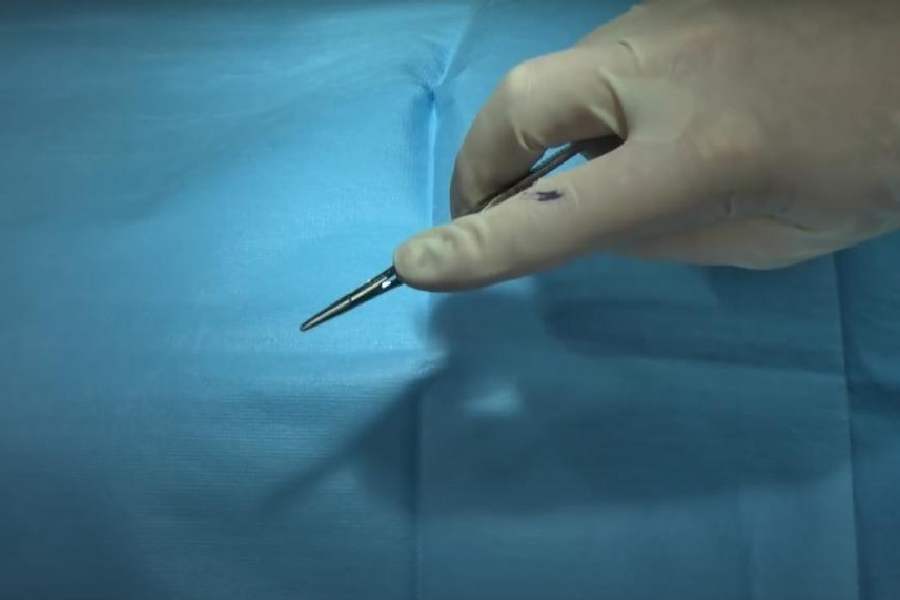Wrong prescription
Sir — Half-knowledge is worse than ignorance, Thomas Babington Macaulay, the man who shaped English education in India, had prophesied. This holds more true than ever before in an age when there is a tutorial for almost everything on YouTube. But that there can be no substitute for formal education was proven true recently when a 15-year-old in Bihar died after a fake doctor tried to remove his gallstone based on a YouTube tutorial. The internet has step-by-step tutorials for everything, from juto shelai to Chandi paath, except the most crucial subject in the 21st century: how to use the internet responsibly.
Riyanka Dhar,
Calcutta
Still restive
Sir — It is a matter of grave concern that at least six people have been killed in a flare-up between Meiteis and Kukis in restive Manipur (“Fresh flare-up in Manipur, 6 dead”, Sept 8). It is also worrying that armed militia groups in the conflict-ridden state are using impact-explosives attached to expensive drones that can fly at higher altitudes to drop bombs in Manipur. The current crisis is a result of the Bharatiya Janata Party’s failure to bring peace between the warring sides. The government both in the state and at the Centre have allowed the Meiteis and the Kukis to remain at odds in order to stay in power in Manipur. This will go against it in the polls as the Lok Sabha elections have already indicated.
Jayanta Datta,
Hooghly
Sir — Manipur is on the boil again. Without political support, the warring communities would not have had access to modern gadgets such as drones to keep the war going. The prime minister should visit the state at once and sit with the Meiteis and the Kukis and assure them that no section will be deprived of its rights. There is no point in trying to end the war in Ukraine if states within India continue to burn. Manipur
will turn into another Jammu and Kashmir if the situation is not resolved at once.
Sravana Ramachandran,
Chennai
Sir — An attack by militants on civilian areas using rocket-propelled grenades and drones has taken the strife in Manipur to the next level. Over 60,000 people in the state have been displaced and are living in camps. The chief minister has failed to bring peace to the state. He should resign at once.
S.S. Paul,
Nadia
Lift the block
Sir — Many excesses and horrors marked the 21-month-long interregnum when India’s robust democracy was put on hold by the Indira Gandhi regime. These included forced sterilisations, bulldozing of homes, mass arrests of political opponents and compliance by institutions meant to be guardrails against executive transgression and overreach. At its core, the Emergency was a violation of the social contract enshrined in the Constitution, which makes the rights to life, liberty and free speech inalienable. It is, therefore, ironical that the BJP government whose leaders sometimes lay claim to the proud legacy of the arduous struggle that led to the Emergency being revoked is not facilitating the release of a movie about that dark period.
Politically sensitive subjects have practically turned into a genre recently with movies like Uri: The Surgical Strike, The Kashmir Files and The Kerala Story. Some of these titles also received de facto State support. Why then should a film on the Emergency be banned?
Kirti Wadhawan,
Kanpur
Poignant vision
Sir — Every year, the Ramon Magsaysay Award recognises the “greatness of spirit shown in selfless service to the peoples of Asia”. Hayao Miyazaki, a co-founder of Studio Ghibli, the director of 12 animated feature films and a manga artist, embodies this spirit perfectly. Miyazaki’s work has constantly displayed the wisdom of a philosopher — calamitous forces like fascism, war (Howl’s Moving Castle), and ecological collapse (Princess Mononoke) often replace traditional epic villains in his films. When antagonists do appear, they are often redeemed — not necessarily by their actions, but through the protagonist’s acceptance and empathy. His legacy will not just be his extensive body of work but also his way of seeing.
Yashodhara Sen,
Calcutta
Tricky equations
Sir — The Goods and Services Tax Council, entrusted with overseeing the seven-year-old indirect tax regime, is slated to meet today. The Council should take a call on reviewing the 18% GST on individual goods and services such as health insurance and life cover that has attracted attention recently within and outside Parliament.
The inclusion of items such as electricity, petroleum and alcohol into the GST net, something that economists have been advocating for years, may be tricky. It will need multi-party consensus as states have given up a lot of taxation power for the GST’s rollout and are unlikely to be amenable to yielding further space. More so since many states have been grumbling about not getting their shares of the GST pie, especially those not run by the Bharatiya Janata Party.
Basudeb Dutta,
Nadia










